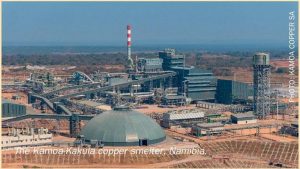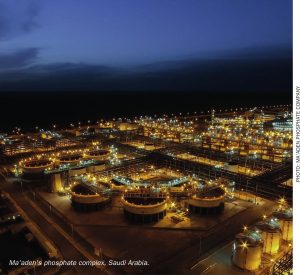
Phosphate investment deal
Syria’s Geological and Mineral Resources Authority has signed an agreement with Teryaq, a subsidiary of Serbia’s Exlixir Group, aimed at exporting 1.5 million t/a of phosphate by the end of 2026. The agreement marks a significant step in Syria’s efforts to expand international partnerships and optimise its mineral resources for economic gain. Elixir Group owns the largest phosphoric acid plant in Europe and operates three fertilizer plants in Serbia.




